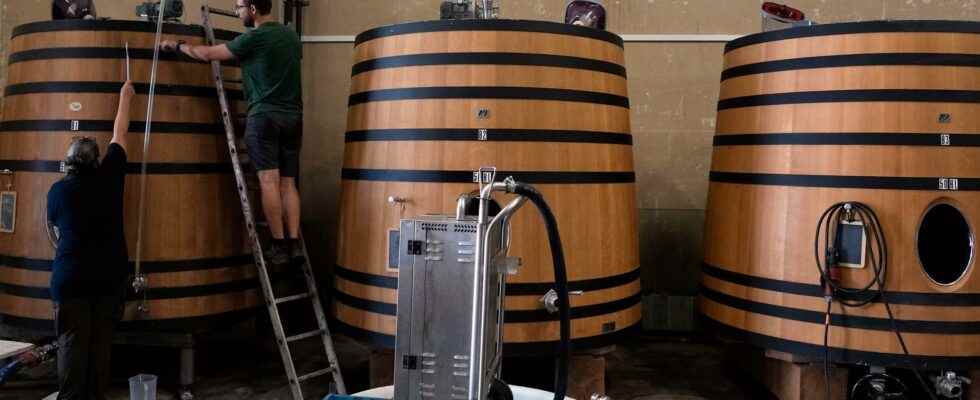By: Henrik Samuelsson/TT
Published: Just now
full screen
Next
Winemaking south of Bordeaux in August 2022 – that the harvests are now coming earlier and earlier is also a kind of crisis signal, a sign of climate change.
1 of 2 Photo: François Mori/AP/TT
A perhaps unexpected alarm goes off in France: people have stopped drinking wine. In any case, consumption has decreased so much that an emergency plan is now being put in place. Billions are to be spent on turning the wine into industrial spirit.
The emergency comes before this year’s season, when warehouses are bursting with unsold previous vintages. In Bordeaux, winemaker Didier Cousiney tells the AFP news agency that he has “the equivalent of two years of sales in the cellar”.
The government responds with a not entirely new trick – turning unsold wine into a more viable liquid was last done as late as 2020, when covid-closed restaurants worldwide meant sales plummeted. And now it’s time again. The Ministry of Agriculture announces that up to 160 million euros (1.8 billion kroner) is being made available to distill the wine so that it can be used as industrial alcohol.
Mostly red
Thus, the French can get involved in the no-longer-so-noble drinks instead – the spirit is expected to be used in medicines and cosmetics, among other things, it says.
It is primarily cheap red wine that is selected. Retail sales of red wine fell by 15 percent last year, according to industry statistics obtained by AFP. Rosé and white wine declined only 4 and 3 percent respectively.
For the country, wine is an important sector, with an estimated half a million employed. Industry association CIVB’s chairman Bernard Farges has warned that “100,000 to 150,000 jobs may be at risk in the coming decade”.
Want compensation
The problem is exacerbated by the climate changes that humans are behind, which means that the climate zones of wine growing are being moved north. It favors new wine ventures in countries such as Great Britain and Sweden, at the expense of France.
To stop overproduction, winemakers such as Didier Cousiney suggest destroying thousands of hectares of vineyards, so that the land can be used for other purposes. The crux of the matter is that in that case they want conversion compensation for each hectare torn up, so it is unclear whether this will happen.
Facts
Wine in France
Once upon a time, France was a country of beer. Or at least the inhabitants of what is now France are believed to have preferred beer and mead-like beverages.
But then came the Roman occupation about 2,000 years ago, and with it the wine – which was used as a means of payment, among other things.
Today, French wines are drunk all over the world. After Italy, the country is our planet’s largest wine producer.
At home, the real heyday lasted until the Second World War, when the French population consumed an average of 130 liters per person per year.
It was only in the 1950s that, for health reasons, attempts were made to curb heavy drinking. The situation can be illustrated by the fact that the aim of a campaign under Pierre Mendès France, Prime Minister in 1954–55, was for workers to limit drinking to “no more than one liter per meal”.
Even in the schools the wine flowed. It was not until 1956 that the serving of wine to children under the age of 14 was stopped.
The trend thereafter can be summed up as “quality trumps quantity”. French wine has become an export success and a prestige product that people spend more and more money on but don’t necessarily drink more of.
Sources: AFP, The Local
Read more
